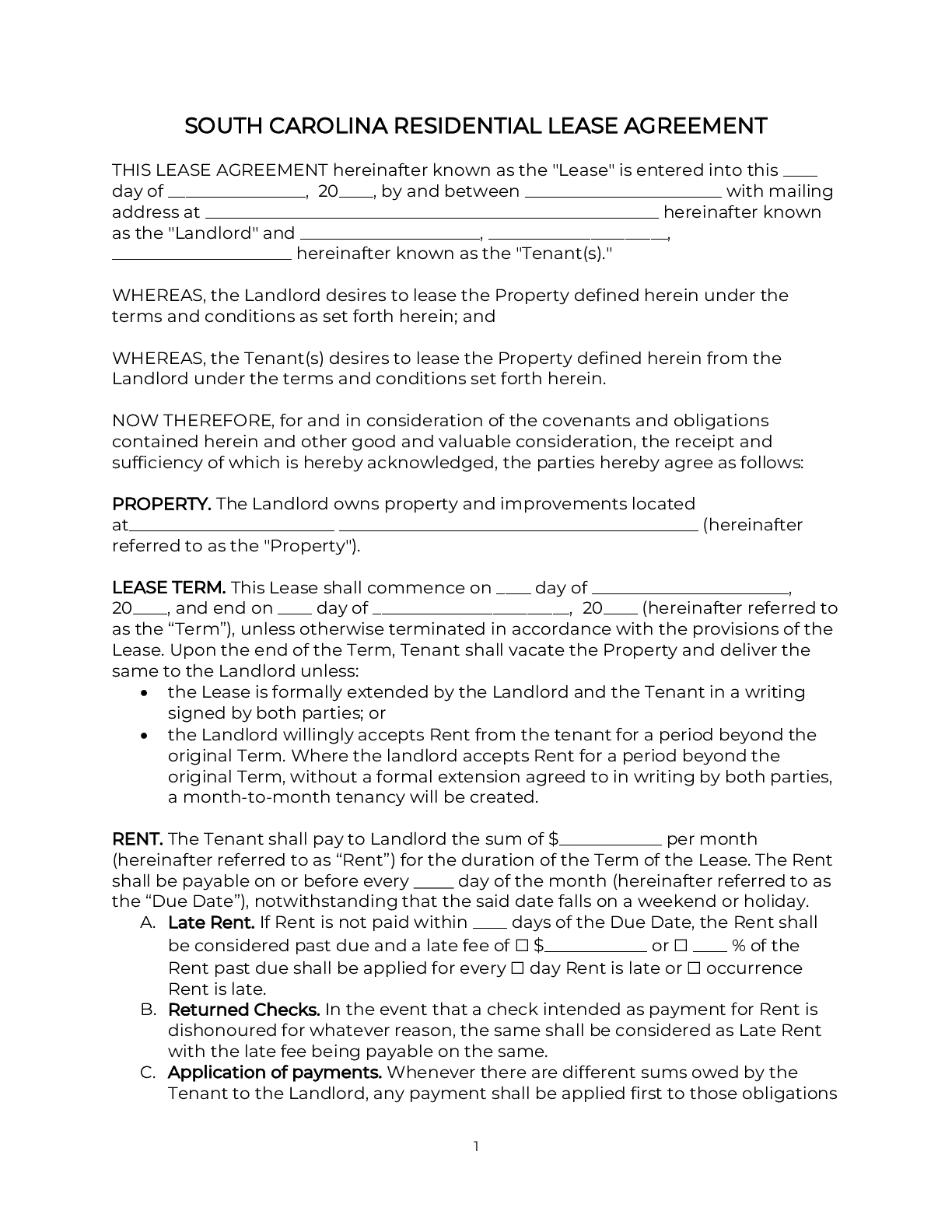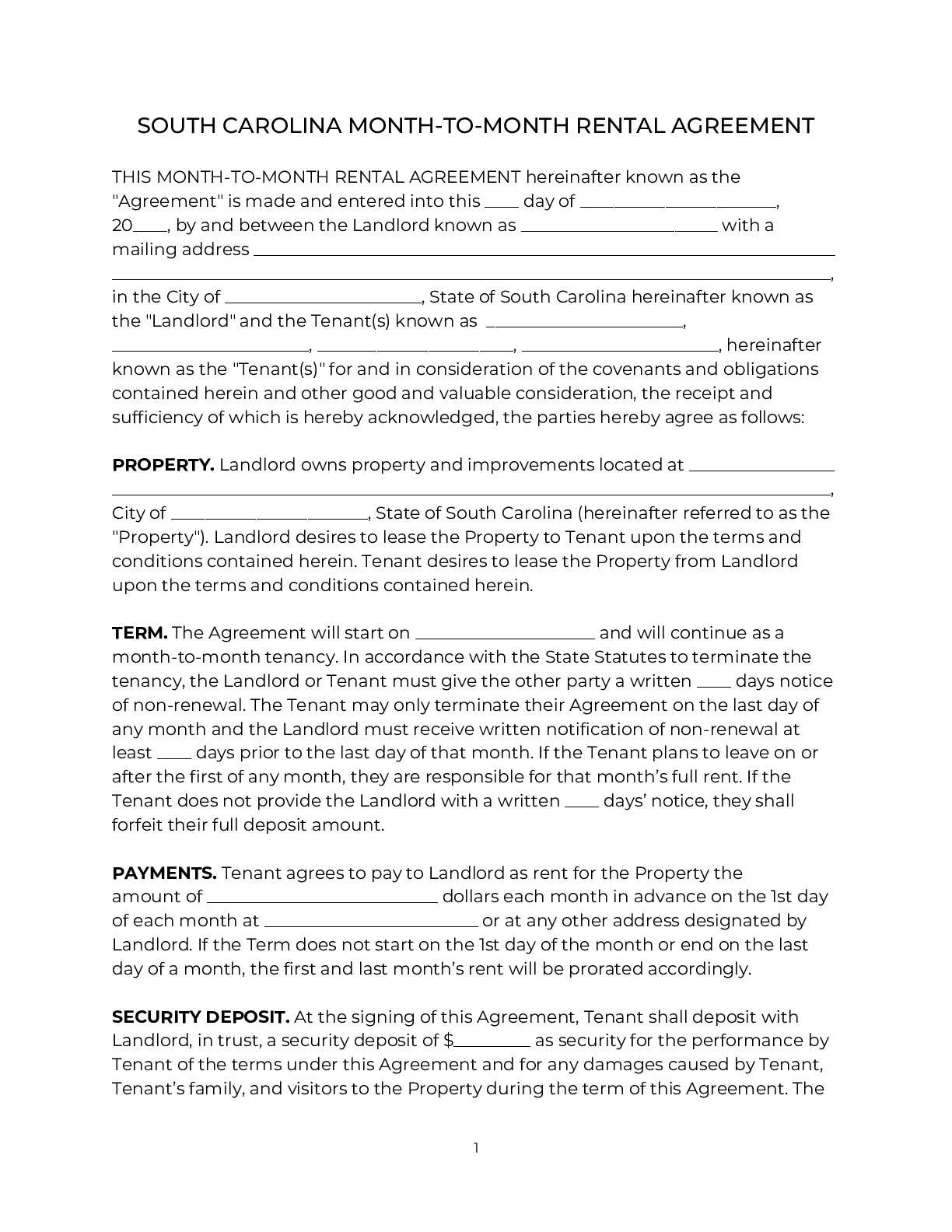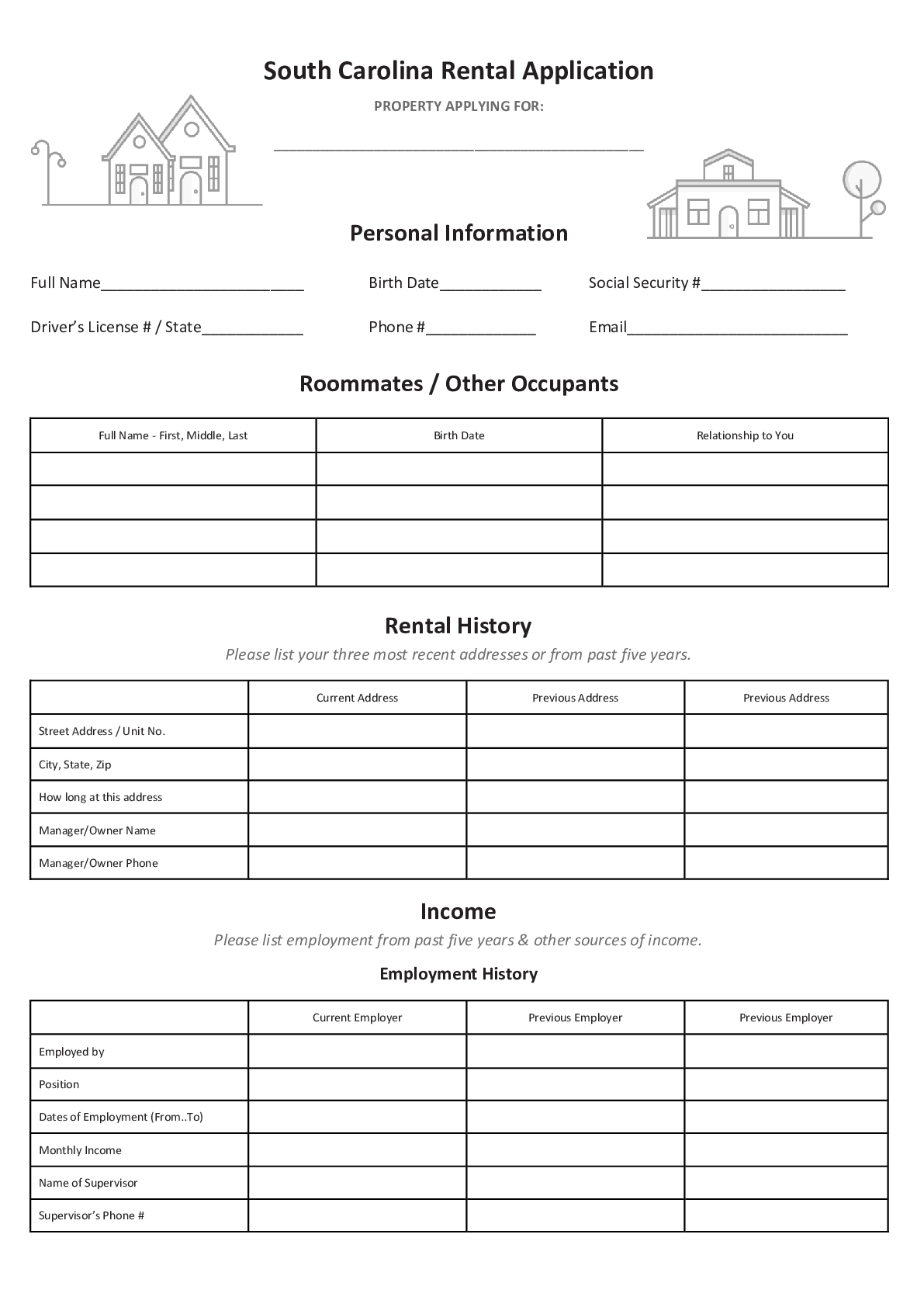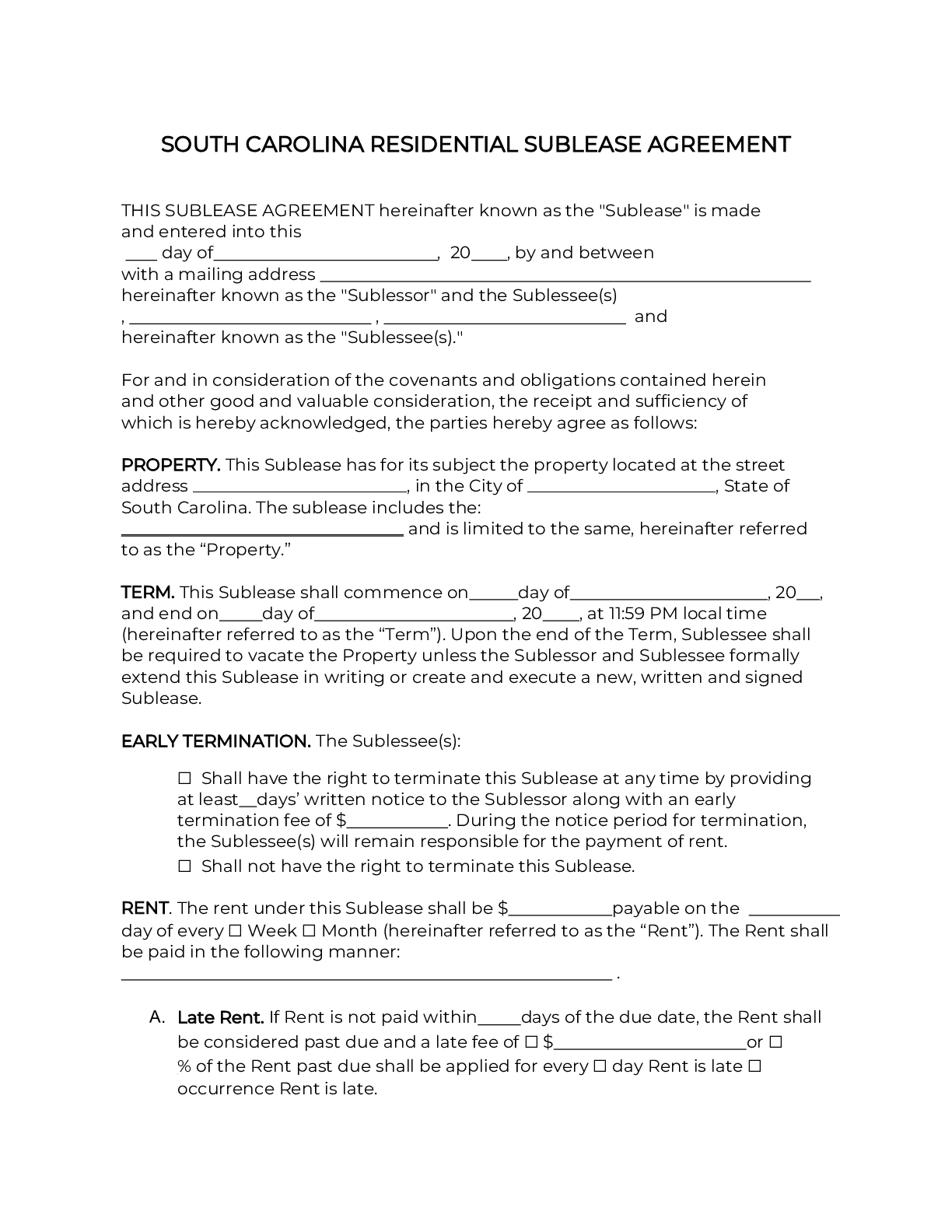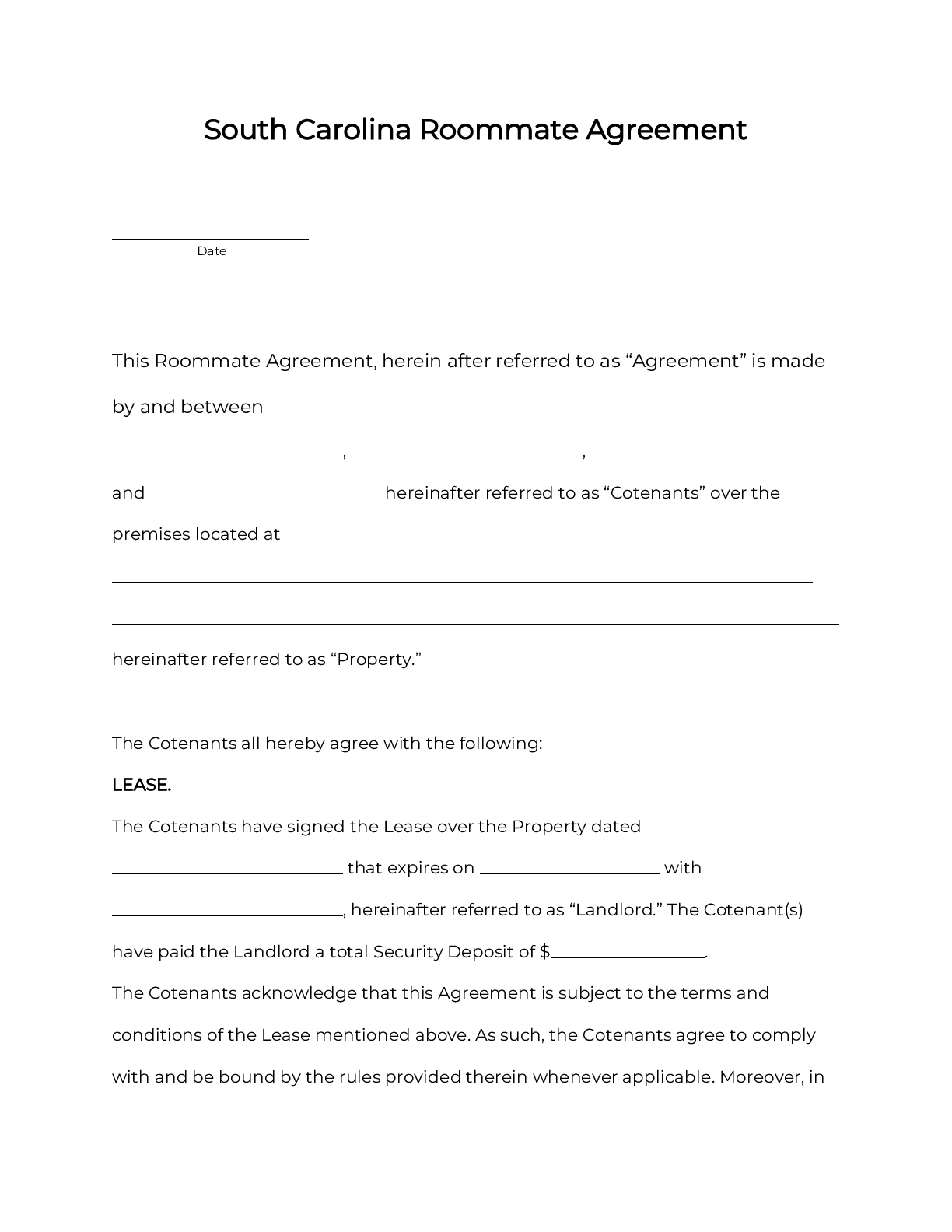A South Carolina rental agreement is a legal contract between a landlord overseeing a rental property and a tenant who wishes to use it. South Carolina landlord-tenant law governs and regulates these agreements.
South Carolina Rental Agreement Types
A South Carolina roommate agreement is a legal contract between two or more people (“co-tenants”) who share a rental property according to rules they set, including for things like splitting the rent. This agreement binds the co-tenants living together, and doesn’t include the landlord.
South Carolina Required Residential Lease Disclosures
- Landlord’s Name and Address (required for all leases) – Landlords must give the tenant their name and address, or that of their authorized agent, to ensure smooth communication and payment of rent in the event of any unusual situations. Typically includes additional contact information for the landlord and authorized agents, such as phone numbers and email addresses.
- Security Deposit Inequality Disclosure (required for some leases) – South Carolina landlords leasing four or more adjoined units in the same building must collect the same amount of security deposit for each, by default. A landlord must provide a special disclosure when collecting differing deposit amounts from one unit to the next.
- Lead-Based Paint Disclosure (required for some leases) – Landlords must provide an EPA-approved disclosure and informational pamphlet to tenants renting any property built before 1978.
To learn more about required disclosures in South Carolina, click here.
South Carolina Landlord Tenant Laws
- Warranty of Habitability – South Carolina landlords can only rent out habitable property. This means providing certain basic health and safety features like heat, plumbing, and electricity. Landlords must repair any issues within 14 days of proper notice. Failure to repair lets a tenant terminate the lease or sue the landlord. South Carolina does not let tenants withhold rent, or repair and deduct.
- Evictions – South Carolina landlords may evict for rent default, lease violations, or illegal acts, among other things. Before filing eviction, landlords must serve tenants with prior notice to pay or quit, depending on the eviction type. This means most evictions in South Carolina take between two weeks to one month.
- Security Deposits – South Carolina does not limit the amount of a security deposit. When the lease ends, the landlord must return any unused portion of a tenant’s deposit within 30 days.
- Lease Termination – South Carolina tenants can end a month-to-month lease with 30 days of advance notice. Terminating a fixed-term lease early usually requires active military duty, landlord harassment, uninhabitable property, or domestic abuse.
- Rent Increases and Fees – South Carolina doesn’t limit the amount or timing of a rent increase. There also are no limits on late fees. Bounced check fees have a $30 cap.
- Landlord Entry – South Carolina landlords have the right to enter rental property for reasonable business purposes, like repairs, inspections, and property showings. Except in emergencies, the landlord must provide at least 24 hours of advance notice and may enter only during defined business hours.
- Settling Legal Disputes – South Carolina lets small claims courts hear landlord-tenant disputes, as long as the amount in controversy is under $7,500. Unlike many states, South Carolina allows eviction cases in small claims. Most landlord-tenant issues fall under a three-year statute of limitations.
To learn more about landlord tenant laws in South Carolina, click here.
Sources
- 1 S.C. Code § 34-11-70(3)
-
A service charge of not more thirty dollars is payable by the drawer of a draft, a check, or other written order to the payee of the instrument when the draft, check, or other written order is presented for payment in whole or in part of a then existing debt including, but not limited to, consumer credit transactions, and is dishonored. This service charge is solely to compensate the payee of the instrument for incurred expenses in processing the dishonored instrument and is not related to a presumption of fraud so that it is not necessary to issue the notice to the person at the address as printed on the instrument set forth in items (1) and (2).
Source Link




